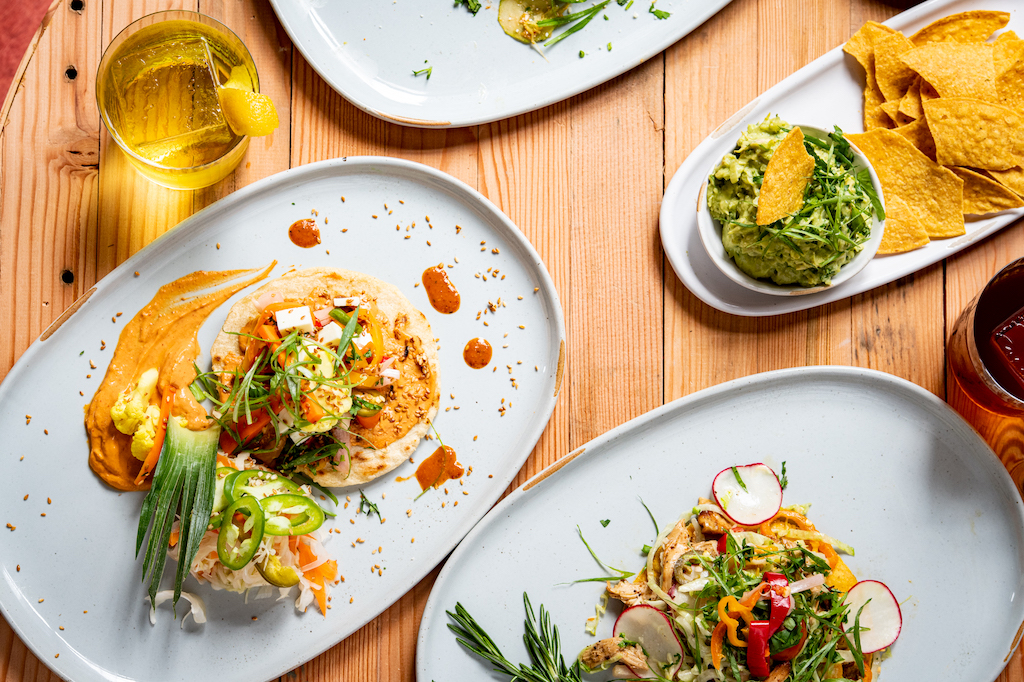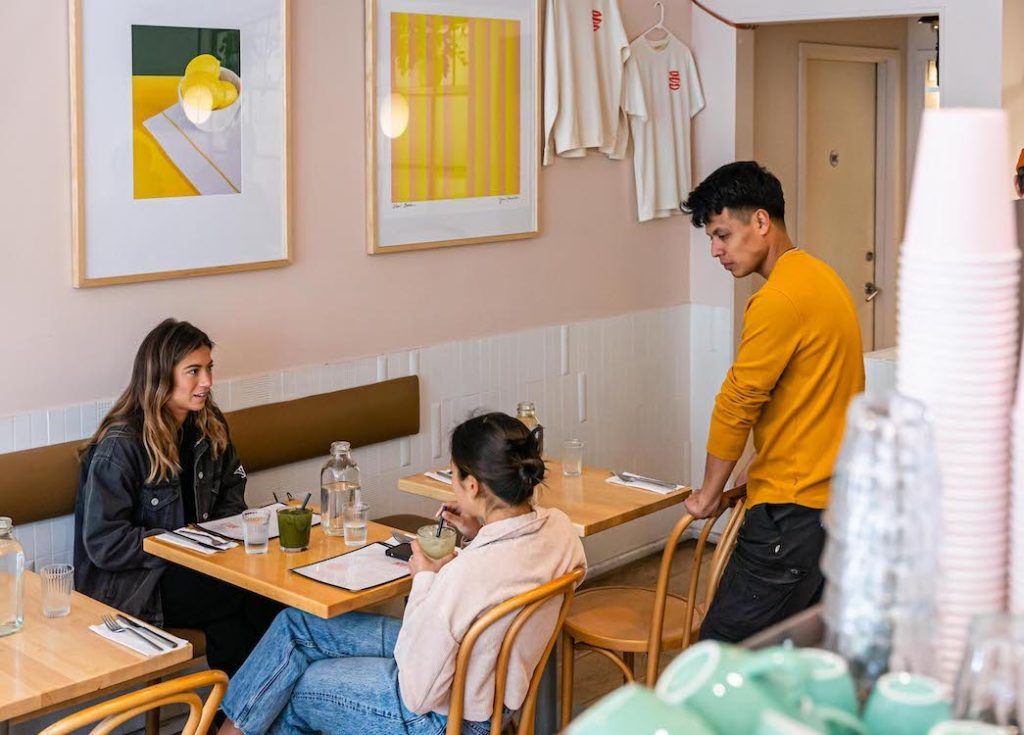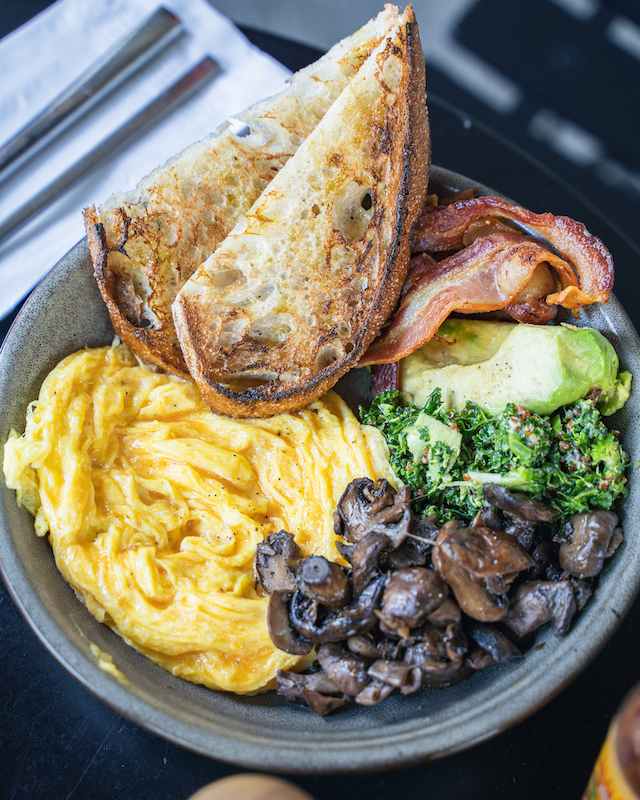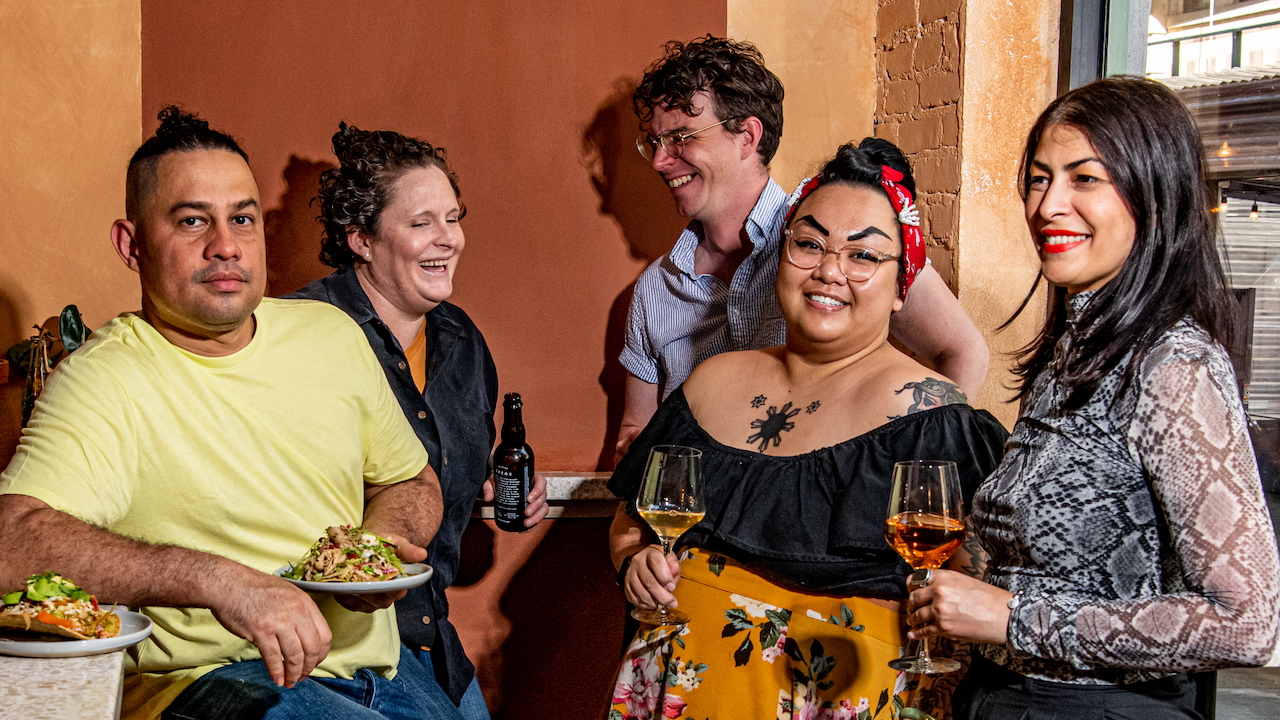BY BONNIE ROSENSTOCK | When Donna, the popular Williamsburg Latin-inspired restaurant/cocktail bar, shuttered at the end of 2020 due to COVID, and then definitively when the building was sold and leased to another business, owner Leif Young Huckman looked for property all over Brooklyn but got priced out. Ironically, in a reversal of real estate fortunes, he found affordable rent in the West Village.
“Our lives were on the line during the pandemic,” recalled Lauren Ruiz, general manager of Donna 2.0 at its new location at 7 Cornelia St., near W. Fourth St., speaking before the May 17 relaunch. “When Leif saw there was an opportunity to revive the business as a cooperative, he took it.”
Huckman was searching for an equitable way of paying workers, one in which everyone participates in the business. He came across a city program for owners selling to workers and helping established businesses convert to cooperatives.
“A PPP [Paycheck Protection Program] loan got us started, and microfinance and impact-investing N.G.O. Working World matched that with a reasonable start-up loan,” Ruiz said.

Huckman then sent out an e-mail to ex-employees asking if they would be interested in reopening as a worker cooperative.
“A few of us said yes,” said Ruiz.
“He also moved out of the city and doesn’t want to be here all the time,” she added. He will remain as an adviser and phase out after two years.
Donna’s worker-owners include Ruiz; Luke Evans, operations; KC Frank, server manager; and Ulises Fuentes, kitchen manager, with bar manager Kitty Bernardo on a fast track to worker-ownership. After a three-month probationary period, one year of work and a review, if interested in becoming a worker-owner, the buy-in fee is $500.
Currently, the profit-sharing is split among the four worker-owners, who also constitute the board. A quorum of 75 percent, that is, three out of four, is required for day-to-day decision-making.
“We expect to be working at a loss for the first few months, which is the industry standard,” Ruiz explained. “At the end of the year, hopefully, we will have a net profit we can divide up.”
The bar manager and kitchen manager will make around $31 per hour. The four worker-owners will each receive a 20 percent share in the profits, after all expenses are paid, on a yearly basis, based on hours put in and percentage of workers. But all employees, regardless of whether they are a worker-owner, are paid an hourly wage for their hours and any overtime. Servers earn an hourly wage, plus shared tips.
“The hope is to increase the salaries of employees who are not yet worker-owners or managers once Donna becomes profitable, with the hope they will also become worker-owners,” Ruiz said.
All the servers cross-train as bartenders, and all the bartenders cross-train as servers, so everyone will have their fair share of work, explained Ruiz.
“This reduces redundancy,” she said. “If I have to hop behind the bar, I can do it.”
Ruiz said the menu has been reworked for the neighborhood, which already has two taco places nearby.
“We didn’t want to lose our Latin-inspired menu, so we still have tacos and burritos but have introduced Central American, like pupusas [griddle cakes] and arepas [cornmeal cakes] since Ulises is Salvadoran,” she said. “The award-winning cocktail program will also draw on Filipino-inspired cocktails from Kitty, who is Filipina, and will bring a little bit of flair to our tropical program.”
Donna will have banquettes with tables and a standing bar with stools. They have their liquor license from morning till night, so if they can staff it, they will be open for brunch on weekends. They can accommodate 48 patrons, plus some standing at the bar.
“During the pandemic, we saw a lot of talent leave the hospitality industry. Everyone said they couldn’t find workers,” Ruiz said. “We have the opportunity to reset, and we’re hoping with our pathway to ownership and equity pay, we could hire and maintain our talent because we’ve become owners. We hope to set a benchmark that other businesses that are struggling to hire will think this is the way.”

A stone’s throw from Donna is Banter, run with a different employee-owned model conceived by Teamshares. Ownership is free, at no cost to employees and is just another perk of working here, explained Alex Skiljan at a sit-down breakfast at the cafe at 169 Sullivan St., between W. Houston and Bleecker Streets (open since 2017). Their West Village locale is at 643 Hudson St. (open since late 2019), with the same hearty and wholesome breakfast and lunch fare.
Teamshares is a financial technology start-up that has more than 80 businesses. The company acquires small businesses from owners looking to retire and converts them to employee-owned. The two Banter owners, Josh Evans and Nick Duckworth, moved back to Australia, but they wanted the business to continue and this past Jan. 1 sold it to Teamshares. It’s Teamshares’ first restaurant in New York.

Teamshares is the board since they are majority shareholders, but the on-site leadership team consists of Skiljan, who runs the day-to-day operations as president (he used to work for Teamshares, which has an office down the street); Chris Brown, general manager; and Mimi Miller, assistant manager.
“Teamshares owns 90 percent of the shares, while 10 percent is distributed to employees at no cost,” Skiljan explained. “It should be 80 percent employee-owned within 20 years. No one gets a pay cut, nothing changes from day to day. Instead of one or two owners at the top, it’s spread around the entire group.
“Your service is your payment,” he continued. “Employees are not buying stock. Actual profits are determined by how the business is doing. Above a certain threshold, the excess cash left over at the end of the month or quarter will be distributed out as dividends. Over time, employees get a bigger and bigger percentage of profits. There’s a better than average chance of surviving with everyone bought in.
“But if you choose to leave, you take out money as part of your compensation,” he said.
Employees receive weekly pay, hourly for back-of-house staff, hourly plus shared tips for front. Front-of-house staff will work at both locations. All the baristas are servers and many of the servers are baristas.
“We will train if they are interested,” he said.
“I’m having an absolute blast running the business,” Skiljan said. “The team has made life really easy. It has been a pleasure getting to know them.”


Thanks for covering this story, or rather stories. I learned about a new restaurant / bar, and I also learned a bit more about “worker-owned businesses.” Re: the latter, yes, it’s unusual to the point of being rare, but another recent local example is Astor Wines & Spirits.
From the article’s 3rd paragraph: “A PPE loan got us started ….” After a fruitless web search, I suspect the loan has nothing to do with ‘personal protective equipment’ but is meant to be ‘PPP loan’ – sourced through the ‘paycheck protection plan.’
It’s unclear from the article to what extent – if at all – customers will be aware Donna 2.0 is worker-owned. Related (and much higher profile): the Union Square Cafe, while not worker-owned, experimented with menu prices adjusted to make tips discretionary rather than expected – and then, reverted to the old model: tips once again are part of the deal.
And a note to Donna 2.0 (if anyone is paying attention): the restaurant’s web site offers pictures and blurbs and short biographies of current worker-owners … but no menu.